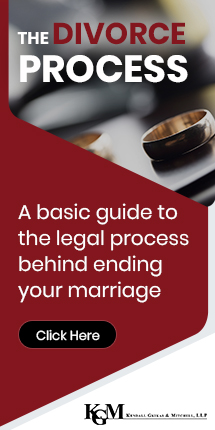
If You’re Angry…
Write it out
Work through your anger by keeping a journal or by writing letters you don’t mail. By doing so, you can release your anger without engaging another person. Also, it is possible that you maybe angry with yourself.
Shout it out
Roll up the windows in your car, or put your head in a pillow and scream.
Talk it out
It’s important when you’re angry to develop your own personal support system. Instead of directing your anger at your ex-spouse, talk to a good friend (or two), or find a therapist who specializes in anger management.
Get some professional help
Anger can suppress other emotions, both positive and negative. Talking to a professional can help you begin to feel those emotions you’ve been suppressing and move past the anger. You could also benefit from a support or anger management group, where you can share your story and help yourself and others move to a position of growth and development.
Take responsibility for your part of the marriage break-up
“It’s a rare couple in which both partners were exactly equal in the breaking of the marriage, but it’s an even rarer couple in which one partner was solely at fault,” writes Constance Ahrons in The Good Divorce.
Do some personal growth work
Anger is a great motivator toward action and can propel you to take steps in your life to change situations.
Learn what “pushes your buttons”
Try to understand your anger — and what triggers it — before you express it. Don’t be afraid to say that you need some time to think about your response.
Protect your children

Keep conflicts at a moderate level
Your ex will often match your level of intensity. And be sure to choose your battles carefully. Expressing every little irritation and disagreement provokes resentment. Think about the most important issues and let go of the small stuff.
Use “I-messages” when expressing anger
Say: “I feel disappointed when you don’t call,” not: “You stupid idiot, you’re always late!”
Give yourself time to recover from the loss of your marriage

Forgive, let go, move on
Anger can become a comfort, a constant in our lives, but as long as you continue to nurse your anger against your ex, you will never have a happy, fulfilled, post- divorce life. Own your responsibility for the break-up, and realize that you have the power to make the choice to forgive and move on, or stay angry and remain stuck. It doesn’t matter what your ex does; you can still choose forgiveness.
If Your Ex Is Angry…
Listen to and validate your ex-spouse’s comments
By really listening to his or her concerns, you may learn where the anger is coming from and identify what you can do to help. It also really helps to defuse the situation by saying something like, “I understand why you’re angry with me.”
Don’t be afraid to take a “timeout”
Walk away from an anger attack if you can’t handle it. You can try saying, “I’m not going to talk to you until you calm down.” Put limits on what you’ll take and how you’ll be treated.
Get some assertiveness training to boost your self-esteem
“Anger is like a fire that must be burned up into the ashes of forgiveness,” writes Ahrons. “If we are passive, it is like throwing more logs onto the fire.”
Try not to take your ex-spouse’s comments too personally
Remember that anger is a projection of one’s own inner feelings and one’s own world. Accept the fact that this person is angry because they’re going through turmoil.
Stay calm
It can really help de-escalate the other person’s anger. Relaxation techniques, such as deep breathing, can be effective when you’re listening to someone who’s really angry.
Learn to recognize your own hot buttons
When someone pushes one of your buttons, your response is going to be way out of proportion to the offense.
Try to feel a little compassion no matter how hard that may be
Your ex may be feeling fearful and threatened, so try to hear what’s underneath the anger; quite often, it’s fear, pain, or shame. Showing empathy or compassion for your ex can go a long way to defusing his or her anger.
Be honest with yourself
Recognize that when someone is angry with you, there may be something in what they’re saying. If your ex is yelling at you, you can choose to think he/she’s a jerk and start yelling back, or you can “dig for the gold” in what he/she’s saying. Keep the gold; discard the dirt and rocks.
Value your safety above all else
If your former partner’s divorce anger seems to be headed in a dangerous direction, put some boundaries in place and communicate through a third party. Threats should always be taken seriously: remove yourself from the situation and refuse face-to-face contact if you sense any danger at all.



